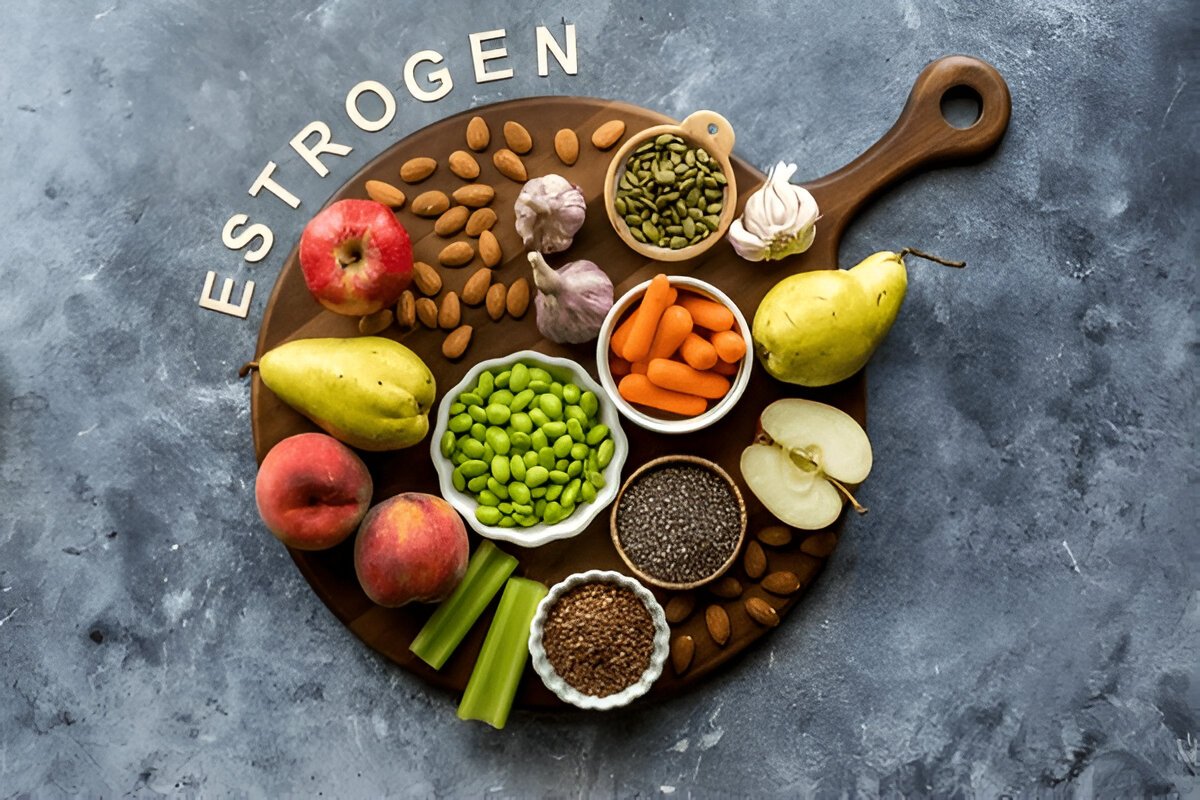Hot flashes are a hallmark symptom of menopause that can cause significant discomfort for many women. Whether it’s a sudden rush of heat during the day or hot flashes at night in women that disrupt sleep, these episodes can affect quality of life and emotional well-being. The good news is that simple changes in your diet may help reduce their frequency and intensity.
Understanding Hot Flashes and Their Impact
Hot flashes are characterized by an intense feeling of heat, sweating, and a flushed face, often followed by chills. These episodes can last from 30 seconds to several minutes and may occur several times a day.
According to the Cleveland Clinic, about 75% of women going through menopause experience hot flashes, and nearly a third of them find their symptoms disruptive enough to seek treatment. Hot flashes typically begin during perimenopause but can continue well into postmenopause for some women.
What Causes Hot Flashes?
The primary trigger behind hot flashes is changing estrogen levels. As estrogen declines, it interferes with the body’s thermostat, the hypothalamus, causing the body to overreact to minor temperature shifts. Additional causes of hot flashes include:
- Stress and anxiety
- Excess caffeine, alcohol, or spicy food
- Smoking
- Obesity or being overweight
- Certain medications
Lifestyle and diet both play a role in how severe and frequent symptoms become. That’s why food can be a powerful tool in managing these uncomfortable moments.
Foods That May Help Reduce Hot Flashes
The right foods support hormonal balance and offer cooling, anti-inflammatory benefits. Here are some of the top dietary additions to consider:
1. Soy Products and Legumes
Soy contains isoflavones, a type of phytoestrogen that mimics estrogen’s effect in the body. These compounds may help regulate body temperature and balance hormones.
- Eat more: Edamame, tofu, tempeh, chickpeas, and lentils
If you are facing the hot flashes problem then her bio can help you. We are creating a blent of Supplements for women’s hormone health to help in hot flashes and other problems.
2. Omega-3 Fatty Acids
These healthy fats help reduce inflammation and may support brain function, mood stability, and hormonal balance.
- Sources include: Salmon, mackerel, flaxseeds, chia seeds, walnuts
3. Leafy Greens and Cruciferous Vegetables
High in fiber and antioxidants, these vegetables help detoxify the body and may support estrogen metabolism.
- Try adding: Kale, broccoli, spinach, Brussels sprouts
4. Whole Grains
Whole grains offer steady energy and help manage blood sugar levels, which can influence hot flashes.
- Examples: Brown rice, quinoa, oats, bulgur
5. Calcium-Rich Foods
Hormonal changes in menopause can lead to bone loss. Calcium also supports nerve function and may indirectly ease symptoms like irritability or muscle cramps.
- Best choices: Fortified plant milks, sardines with bones, leafy greens
6. Vitamin E
Some small studies suggest vitamin E can offer relief from mild hot flashes.
- Found in: Almonds, sunflower seeds, avocados
Why Diet Matters—Especially at Night
For many women, hot flashes in women become worse at night, leading to poor sleep and fatigue. Known as night sweats, they can be triggered by both internal and external factors—diet included.
To minimize nighttime symptoms:
- Avoid spicy or heavy meals in the evening
- Limit caffeine and alcohol
- Drink plenty of water throughout the day
- Eat cooling foods like cucumbers, melons, or yogurt before bed
Even small dietary changes can promote better sleep and reduce those 2 a.m. wake-up calls.
Conclusion
Navigating menopause can be challenging, but nutrition offers a gentle, natural way to manage symptoms. Adding phytoestrogens, healthy fats, calcium, and fiber-rich vegetables to your diet may help you feel more in control.
While everyone’s body is different, many women find that food choices make a noticeable difference. Whether you’re dealing with occasional flare-ups or persistent hot flashes at night in women, building a diet that supports hormonal health is a smart and sustainable strategy.
As research continues to explore the connection between diet and menopause symptoms, one thing is clear: what you eat matters. Small, consistent choices can bring lasting relief—without medication.









